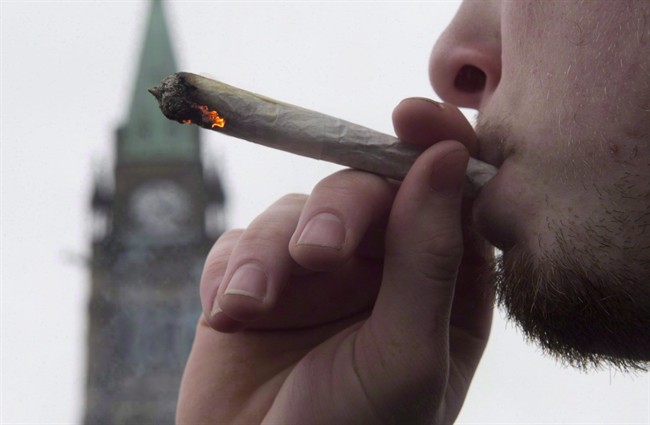It’ll be up to the Crown attorney to determine whether they’ll proceed with marijuana-related cases already before the Ontario Court of Justice, when the Liberal government’s legislation is officially rolled out.

London-based defence lawyer Carolynn Conron said if the Crown decides there’s a reasonable prospect of conviction, they then need to decide if there’s a public interest in proceeding with charges.
“There’s a significant amount of resources that go into prosecuting a case,” explained Conron, pointing out that simple charges for possession often lead to counselling sessions or community-service work, rather than criminal convictions.
READ MORE: Federal legislation on legalizing marijuana unveiled
“Really there aren’t a lot of simple possession charges that continue before the courts, and I think that’s in recognition of the seriousness of the substance and the public perception towards it.”
But until legislation is official, it’s still an offence, and Conron emphasized that the law exists as it is currently — so even someone whose case is before the courts once marijuana legalization is approved could still be convicted.
Conron, who has her own practice in London, was inspired to study law at Western University and pursue her legal career by what she calls the “unjust” criminal prohibition of marijuana.
“It’s been too long that people have been prosecuted for this offence without just cause. The harms that are known are generally mild, and people have been using this plant for millennia, so I think it’s high time that this is legalized.”
The federal government laid out the framework for the legalization of marijuana in the House of Commons on Thursday. If all goes according to the Liberals’ timeline, that framework will be in place as of July 1, 2017.
While individual provinces are given the reins to set the legal age limit higher than 18, it’ll be up to municipalities such as the City of London to decide what kind of bylaws will be put in place to regulate the buying, selling, growing, and recreational use of the drug.
“We’re awaiting on further information from the provincial government on whether the plan is to regulate this product similar to alcohol or to tobacco, which will obviously indicate which direction we go to from a retail and distribution perspective,” said London’s bylaw officer Orest Katolyk, adding that it’s illegal to drink alcohol and smoke cigarettes in public areas.
“There’s a lot of information that we have to digest,” said Katolyk. [We need to] look at best practices, really focus on protecting the health, safety and quality of life of Londoners with this new announcement.”
Katolyk said public information meetings will be held to help direct the city in creating its marijuana bylaws.








Comments